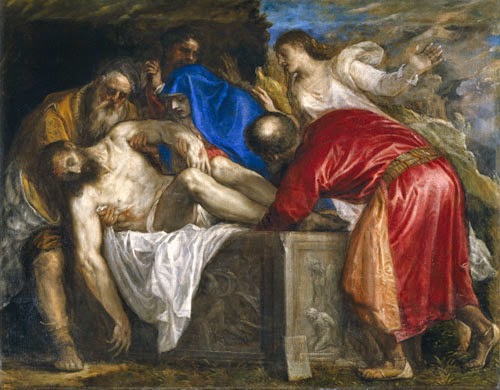So I say, “It is my sorrow
That the right hand of the Most High has changed.”
(Psalm 77:10 HCSB)
The psalm writer has been in a severe time. “The day of my trouble,” he calls it. He has been afflicted somehow. He is in deep distress. By what, we do not know. He calls out to the God — loudly. “I yell out to my God, I yell with all my might, I yell at the top of my lungs” (v. 1, The Message). All day he lifts his hands to the Lord in prayer, but finds no comfort (v. 2). He remembers God, but his trouble remains. He meditates, but he is overwhelmed and weak (v. 3). Whatever this thing is, it is keeping him awake — and God is silent about it. His pain becomes too deep for words and his voice gives out (v. 4). He thinks of earlier days and happier times (v. 5). In the night, he calls to mind the song he used to sing, the music he used to make. He ponders in his heart, diligently seeking an answer (v. 6). He asks himself,
Will the Lord reject forever
And never again show favor?
Has His faithful love ceased forever?
Is His promise at an end for all generations?
Has God forgotten to be gracious?
Has He in anger withheld His compassion? Selah.
(Psalm 77:7-9 HCSB)
These kinds of questions are easier to answer when things are going well than when everything seems to be falling apart. They emerge from the psalm writer’s deep pain: Has he been rejected by the Lord? Has the favor of God come to an end in his life? Has God stopped loving him? Has the promise of God failed? What about grace — has God forgotten to hear and answer prayer? Is God holding back His compassion?
Selah, indeed. Quick and easy answers won’t do here. He has come to the end of those. The anguish of his heart is too deep for shallow, thoughtless responses. He needs something that will sustain him.
It is characteristic of many psalms that the climax comes in the middle, not at the end. That is the case here. The turning point in the next section, verses 10-12, brings the climax of the psalm. It divides the psalm into two, roughly symmetrical, halves.
So I say, “It is my sorrow
That the right hand of the Most High has changed.”
I will remember the LORD’s works;
Yes, I will remember Your ancient wonders.
I will reflect on all You have done
And meditate on Your actions.
(Psalm 77:10-12 HCSB)
He concludes the first half with the words, “It is my sorrow that the right hand of the Most High has changed” (v. 10). Of course, as he was going through his distress, he probably did not realize it was just the first half of the story. He has presented the intensity of his anguish, and he is in rough shape, perched on the sharp, painful edge of sorrow. His answer to the earlier questions he posed is, “Yes, God
has changed toward me.” It is an emotional response.
But then, in verse 11, he takes an unexpected turn. He begins to speak in a different way. He does not tell his soul, “That’s just the way it is, get used to it.” Though all seems dark, though God seems absent and His hand seems still, the psalm writer makes a critical decision: “I will remember the works of the LORD.”
Up until now, he has spoken only of “God” and “the Most High” and “Lord.” The name “God” is a title; it does not tell us
who God is but
what He is. “Most High” is an honorific, and “Lord” (Hebrew,
Adonai) is a name of respectful address. But now he speaks of “LORD” (all capitals). We often forget that this is a personal name there because it is usually disguised in English translations by the word “LORD,” in all capital letters. But the Hebrew name is — Yahweh, the personal name of by which God reveals Himself in covenant relationship with His people.
Until now, the psalm writer has wallowed in his distress and how he called on God but found no help. But now, he remembers that his God is Yahweh, with whom he and his people are in covenant. He has gone from thinking generically and religiously to leaning into personal relationship with Yahweh. And he makes a definitive choice: “I will remember the works of Yahweh!”
He confirms that with, “Yes, I will remember Your ancient wonders” and follows it up with, “I will reflect on all You have done and meditate on Your actions.” Before, he spoke
about God. Now he speaks
to Him. Before, God felt distant to him. Now, he is stepping into intimacy with Him.
Understand, God has not moved anywhere throughout the psalm. He did not go away; He has not just now come back. God has not changed, but the psalm writer has. He has stepped away from how things seemed and the way he felt, into the personal relationship with Yahweh that was waiting there for him all along.
In the first half, the psalm writer thought about the “good old days,” his thoughts switching back and forth between the way things were then and how they were now. In the second half, he makes a choice: “I will remember Yahweh’s works.” Before, it was all about him and his misery. Now it was all about Yahweh and His works, His miracles and wonders, and all the ways He came through for His people.
The psalm writer made a definite choice. It was a willful, intentional act. To remember is to call to mind. “I will call to mind the works of Yahweh,” he said. More than that, he pondered them, meditated them, reflected upon them, and spoke of them, uttering them with his lips.
The second half of the psalm is all about Yahweh, His wonders, His strength, His power and the redemption He brought for His people. Specifically, he talks of God’s great redemptive act: When God delivered the children of Israel out of Egypt and led them through the wilderness into the Promised Land. It is the touchstone of salvation in the Old Testament. It points us toward the New Testament and the greatest redemptive act of all: The Cross and Resurrection of King Jesus the Messiah.
This sets things in perspective for us. Paul, who was no stranger to affliction, distress and days of trouble, put it this way
What then shall we say to these things? If God is for us, who can be against us? He who did not spare His own Son, but delivered Him up for us all, how shall He not with Him also freely give us all things? Who shall bring a charge against God’s elect? It is God who justifies. Who is he who condemns? It is Christ who died, and furthermore is also risen, who is even at the right hand of God, who also makes intercession for us. Who shall separate us from the love of Christ? Shall tribulation, or distress, or persecution, or famine, or nakedness, or peril, or sword? … Yet in all these things we are more than conquerors through Him who loved us. For I am persuaded that neither death nor life, nor angels nor principalities nor powers, nor things present nor things to come, nor height nor depth, nor any other created thing, shall be able to separate us from the love of God which is in Christ Jesus our Lord. (Romans 8:31-39)
When God seems absent and His hand seems still, it is time to remind ourselves of the mighty works of God, the victories He has won for us in King Jesus the Messiah. Even now, they are already being worked out in the world.
















